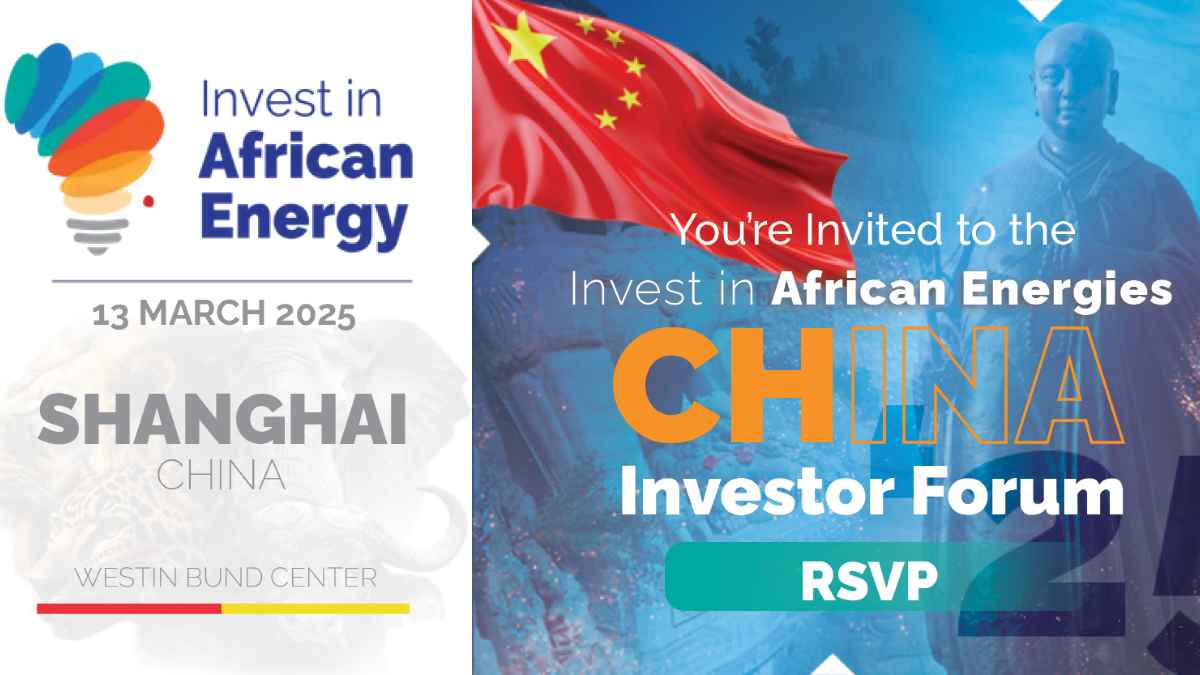CAPE TOWN, South Africa, February 25, 2025/APO Group/ –China’s growing influence in Africa’s oil and gas sector, particularly in exploration and production (E&P), continues to reshape the region’s energy landscape. At the heart of this expansion is China’s strategic interest in securing energy resources to fuel its growing economy while advancing its Belt and Road Initiative. As the global energy transition accelerates, China’s engagement with Africa’s oil and gas sector has evolved, reflecting both a long-term investment strategy and a deeper commitment to regional energy security.
China National Offshore Oil Corporation (CNOOC) is actively developing key oil fields across Africa, including Nigeria’s ultra-deep Egina field and the recently operational Akpo West field. In Niger, China National Petroleum Corporation (CNPC) signed a $400 million crude supply deal in 2024 and is building a 1,980-km pipeline linking the Agadem Rift Basin to Benin’s Atlantic Oil Terminal. In South Sudan, Dar Petroleum Operating Co., which counts CNPC and Sinopec as major shareholders, resumed production this month after nearly a year-long hiatus. Sinopec is also expanding its footprint in Algeria through a March 2024 agreement with Sonatrach, which includes plans for the Hassi Berkane Nord exploration zone. Meanwhile, United Energy Group is set to double its Egyptian output after acquiring Apex International Energy’s Western Desert portfolio, adding over 22,000 barrels per day to its production across five concessions.
In the Republic of Congo, Chinese firm Wing Wah is leading the Banga Kayo gas monetization project, converting flared gas into LNG, butane and propane. CNOOC is advancing Uganda’s Lake Albert project, targeting first oil from the Kingfisher field in 2025. In Mozambique, CNPC is a partner in the $30 billion Rovuma LNG project, expected to reach FID in 2026, while CNOOC signed agreements in April 2024 for five exploration blocks in the Save and Angoche offshore areas. CNOOC is also making waves in Gabon, drilling the Tigre-1 probe in a high-potential deep-water oil prospect, marking the company’s first exploration in Gabon’s deep waters in over five years.
China’s expanding role in Africa’s energy sector is not only reshaping regional markets, but also creating vital opportunities for investment
China’s energy investments in Africa extend beyond exploration and production to include vital infrastructure development, including pipelines, power plants and refineries. In Angola, China National Chemical Engineering Co. secured the EPC contract for the $6 billion Lobito Refinery, while China Engineering and Machinery Corp. was recently awarded the contract to build a 350 MW gas power plant in Nigeria. In South Sudan, CNPC and the government are exploring plans to build a new pipeline passing through Djibouti and Ethiopia, aimed at enhancing export capabilities as production increases in Blocks 3 and 7. Additionally, CNOOC is a key partner in the $5 billion East African Crude Oil Pipeline, which will facilitate the first Ugandan oil exports, with financing from the China Export-Import Bank and several other Chinese banks. These infrastructure projects are part of China’s broader push to integrate African nations into global energy supply chains, enabling greater energy access while supporting regional economic growth.
Looking toward 2025 and beyond, China’s role in Africa’s energy sector is expected to evolve in response to emerging trends in the global energy market, including the drive toward cleaner energy sources and greater emphasis on sustainability. Through companies like China General Nuclear Power Group (CGN), JinkoSolar and China Energy Engineering Group, China is funding wind, solar, nuclear and hydropower projects across the continent, reinforcing its commitment to the African energy transition. This shift aligns with China’s broader climate goals, which include achieving carbon neutrality by 2060, and highlights the growing synergy between China’s energy investments and Africa’s renewable energy ambitions.
As part of this growing collaboration, the African Energy Chamber (AEC) will host the Invest in African Energies investor forum in Shanghai on March 13, 2025.The event will focus on strengthening China-Africa relations and creating new opportunities for Chinese producers, investors and equipment suppliers to expand their footprint across Africa. The Shanghai forum will set the stage for the African Energy Week (AEW): Invest in African Energies conference in Cape Town, where key stakeholders will continue to discuss how China’s increasing energy investments in Africa can drive future development, support the continent’s energy transition, and unlock new avenues for energy cooperation across both traditional and renewable sectors.
“China’s expanding role in Africa’s energy sector is not only reshaping regional markets, but also creating vital opportunities for investment, infrastructure development and long-term energy security. As we prepare for the Invest in African Energies investor forum in Shanghai and African Energy Week 2025 in Cape Town, we look forward to strengthening partnerships that drive sustainable growth across both traditional and renewable energy industries,” said Leoncio Amada Nze Nlang, CEMAC Executive President at the AEC.
To register, visit: https://apo-opa.co/41hZqCm
AEW: Invest in African Energies is the platform of choice for project operators, financiers, technology providers and government, and has emerged as the official place to sign deals in African energy. Visit www.AECWeek.com for more information about this exciting event.
